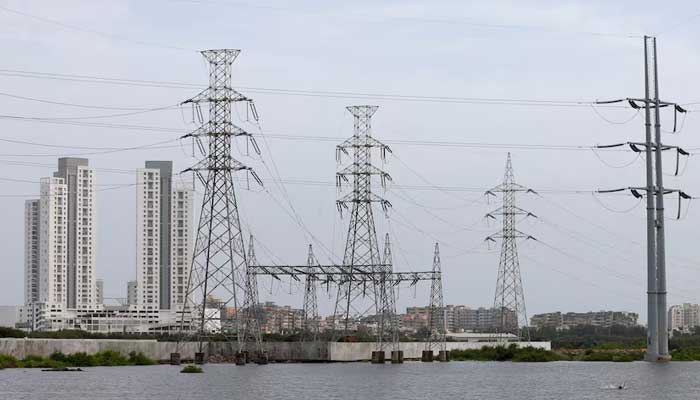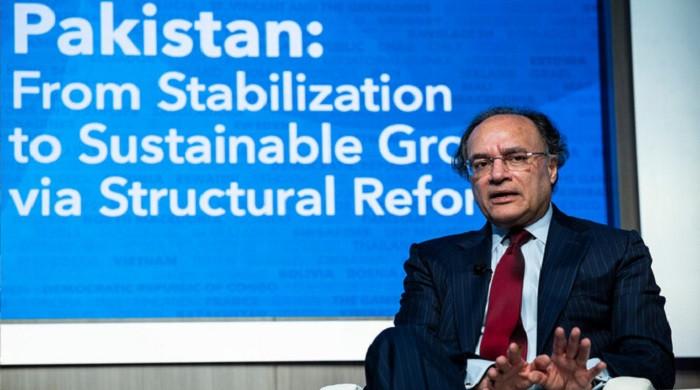Govt concludes talks with 14 IPPs over slashing power cost
NTDC issues revised merit order prompting energy ministry's task force to begin negotiations with other IPPs
December 15, 2024

- NTDC issues merit order for talks with IPPs operating on costly fuel.
- Halmore Power producing electricity at whopping Rs61.23 per kWh.
- Uch has lowest generation cost at Rs3.11 per kWh via natural gas.
ISLAMABAD: The government has successfully concluded negotiations with 14 residual furnace oil (RFO)-based independent power producers (IPPs) under "take and pay" terms, The News reported on Sunday.
This development comes in the wake of Prime Minister Shehbaz Sharif's announcement regarding the phased shutdown of outdated power plants across the country, aimed at tackling soaring electricity costs and improving energy efficiency.
Additionally, the National Transmission and Dispatch Company (NTDC) has issued a revised merit order, prompting the Ministry of Energy's task force to initiate talks with operators of power plants using costly fuels such as high-speed diesel (HSD), RFO, and re-gasified liquefied natural gas.
The IPP with the highest generation cost is Halmore Power, operating on HSD, producing electricity at Rs61.23 per kWh, while Uch, utilising natural gas, has the lowest generation cost at Rs3.11 per kWh.
Besides Halmore, others are Saif Power and Sapphire Electric Co, both using HSD at costs of Rs60.8 per kWh. Orient Power Company is also HSD-based, producing power at Rs60.2 per kWh.
Engro PowerGen operates on HSD, generating electricity at Rs55.2 per kWh, while NPPMC Baloki (CC) and QATPL Bhikki (CC) use HSD to produce electricity at Rs53.2 and Rs51.6 per kWh, respectively.
The RFO-fuelled Muzaffargarh B-III (Unit-6) produces power at Rs50.8 per kWh, and Punjab Thermal Power, running on HSD, generates electricity at Rs50 per kWh.
Muzaffargarh B-III (Unit-5), Muzaffargarh B-I (Unit-2), and Muzaffargarh B-I (Unit-1) are RFO-powered plants producing electricity at Rs49.5, Rs48.2 and Rs47.5 per kWh respectively.
Similarly, Muzaffargarh B-I (Unit-3) and Muzaffargarh B-II (Unit 4) operate on RFO with generation costs of Rs46.5 per kWh each. The HSD-based NPPMC HBS (CC) generates electricity at Rs44.1 per kWh, while Saba, running on RFO, produces electricity at Rs43.9 per kWh.
Jamshoro B-II (Unit 2) uses RLNG at a cost of Rs43.5 per kWh, while Jamshoro B-II (Unit 3) runs on RLNG and RFO at Rs42.4 and Rs42.1 per kWh, respectively. Jamshoro B-II (Unit 4) operates on RLNG and RFO with generation costs of Rs41.5 and Rs40.1 per kWh, respectively. Hubco, an RFO-based plant, generates electricity at Rs40.7 per kWh.
Muzaffargarh B-III (Unit-6) and Muzaffargarh B-III (Unit-5) are RLNG-fueled plants with generation costs of Rs40.4 and Rs39.3 per kWh respectively.
Altern Energy (Ph-I) operates on RLNG at Rs39.6 per kWh, while Muzaffargarh B-I (Unit-2) and Muzaffargarh B-I (Unit-1), both RLNG-based, generate power at Rs38.4 and Rs37.9 per kWh respectively.
Jamshoro B-I (Unit 1) runs on RFO at Rs37.5 per kWh, while Muzaffargarh B-I (Unit-3) and Muzaffargarh B-II (Unit 4) operate on RLNG with generation costs of Rs37.1 and Rs37.0 per kWh respectively.
PakGen Power and Lalpir are RFO-fueled plants generating power at Rs36.2 and Rs35.8 per kWh respectively. Davis Energen runs on RLNG with a generation cost of Rs34.9 per kWh, and Liberty Power Tech, powered by RFO, produces electricity at Rs34.3 per kWh. Nishat Chunian and Narowal Power operate on RFO, generating electricity at Rs33.4 and Rs33.2 per kWh, respectively.
KEL, Attock Gen and Nishat Power are RFO-based plants with generation costs of Rs32.9, Rs32.3 and Rs31.5 per kWh, respectively.
The FKPCPL uses RLNG and produces electricity at Rs31.4 per kWh, the same cost as Atlas Power and Altern Energy (Ph-II), which operate on RFO and RLNG respectively. Finally, Rousch, powered by RLNG, generates electricity at Rs28.8 per kWh. The government aims to expedite negotiations to ensure cost reductions and increased efficiency in the energy sector.











